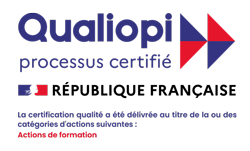Willems® Pedagogical Diploma
for Music Training and Instrumental Education

2025/26 > Only open to 1st year students – LYON – France
Are you a musician or professional instrumentalist interested in teaching?
Why a new Willems® Teaching Diploma for Music Training and Instrumental Education
Many instrumental teachers, interested in Edgar Willems' original and global approach, but unwilling to give introductory music lessons to young children, could not find what they were looking for in a training programme geared primarily towards musical initiation in early childhood.
This is why the International Willems® Federation has created this new Willems® Teaching Diploma for Music Training and Instrumental Education.
It complements the Willems® Pedagogical Diploma for Music Education.
The two courses take opposite approaches: the Blue Cycle starts with an overall introduction to music and leads on to musical and instrumental practice, while the Green Cycle starts with instrumental practice and its many problems, gradually integrating all the preparatory elements needed for full musical practice.
On the other hand, Musical Training, in other words Solfeggio, should be an essential complement to instrumental practice. However, the traditional link between these two disciplines is non-existent, even though instrumental teachers are often also in charge of music theory lessons in many structures.
The FIW's proposal is designed to meet this need for coherence between general musical education, which includes solfeggio, and comprehensive musical practice, which includes various facets: playing by ear, reading a prima vista, memorising literature from all periods and styles, and improvising.
An instrumental diploma is required to join the course. In addition, the teaching practice is based on a good musical training, allowing the student to be at ease with reading and writing.
For this reason, a Diplôme d'Études Musicale from a conservatoire or music school in France, or an equivalent European qualification, is required to start this course.
The application includes the registration form, copies of diplomas and a letter of motivation.
If the applicant does not have a musical training diploma, he or she will have to take an admission test comprising :
- An a cappella solfied sight-reading to beat time
- A rhythmic reading while chanting an onomatopoeia
- A vocalized melodic improvisation in dialogue with the examiner`A rhythmic improvisation using onomatopoeia while beating time to a given bar
- Rhythmic dictation
- Melodic dictation with modulation
- An instrumental or vocal piece (or excerpt) from 3 to 5′ long.
The course runs over 2 years, with 8 weekends a year.
These weekends are supplemented by 2 summer courses, including an international conference.
The 254 hours of tuition are divided into :
- Year 1 / D-EM1: 109 hours / 80h of classes + 1h of individual assessment + 8h of assessments (written & oral) + 20h of internship (International Congress).
- Year 2 / D-EM2: 145 hours / 84h of classes + 2h of individual assessment + 12h of written exams + 12h of international final exam seminar/ oral exams + 35h of internship (International Congress).
The course will be open to a minimum of 10 enrolments.
All courses started in the 1st year will be completed.
Three instrumental options are available:
- Dominantly vocal, for singers
- Dominantly harmonic, for pianists, harpsichordists and organists
- Melody dominant, for all other instruments
Musicality
- Full aural development (qualities of sound, sound movement, intervals, 3- and 4-tone chords, aggregates and intratonal space)
- Sense of rhythm and metre, polyrhythm and polymetry, body movement and rhythmic improvisation
- Vocal culture, singing, acquiring a repertoire of songs, melodic sense, free, modal and tonal improvisation and written melodic invention, choral conducting
- Harmony vocal and instrumental practice (piano or guitar) in 2, 3 or 4 voices, harmonic cadences, harmonic improvisation and written inventions
- Solfeggio and rhythmic, melodic and harmonic dictation
- Listening to music and reading orchestral scores
General and musical education
- Fundamental pedagogy course, covering topics relating to music, musical and instrumental education and the psychology of the child in musical action, based in particular on the written work of Edgar Willems.
- Observation of practical lessons (live with children or on video), pedagogical progression from musical initiation (first and second degrees), pre-solfège and pre-instrumental (third degree) to living solfeggio (fourth degree) and instrumental beginnings, this progression also being tested on oneself; accompanied training in teaching situations for the practical implementation of the progression with one's own pupils from the 2nd year of training.
